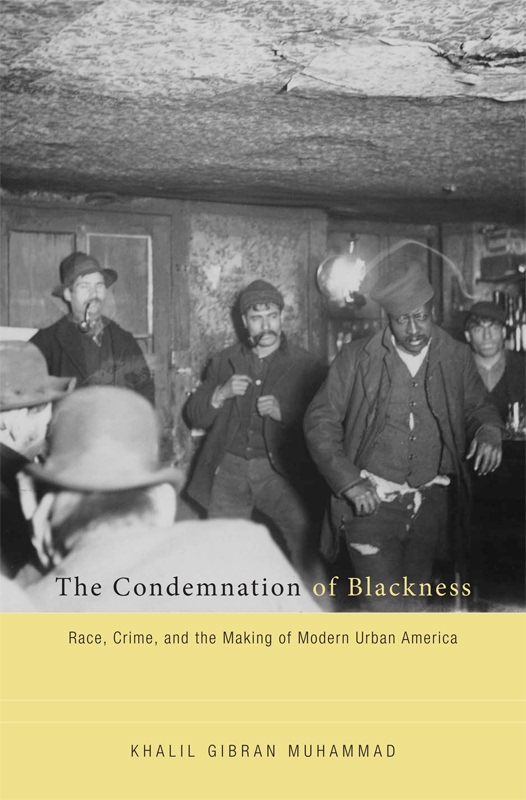

Most ebook files are in PDF format, so you can easily read them using various software such as Foxit Reader or directly on the Google Chrome browser.
Some ebook files are released by publishers in other formats such as .awz, .mobi, .epub, .fb2, etc. You may need to install specific software to read these formats on mobile/PC, such as Calibre.
Please read the tutorial at this link: https://ebookbell.com/faq
We offer FREE conversion to the popular formats you request; however, this may take some time. Therefore, right after payment, please email us, and we will try to provide the service as quickly as possible.
For some exceptional file formats or broken links (if any), please refrain from opening any disputes. Instead, email us first, and we will try to assist within a maximum of 6 hours.
EbookBell Team

4.8
84 reviewsChronicling the emergence of deeply embedded notions of black people as a dangerous race of criminals by explicit contrast to working-class whites and European immigrants, this fascinating book reveals the influence such ideas have had on urban development and social policies.
**
ReviewA dazzling study that illuminates a great deal about the social construction of black criminality. Muhammad does a superb job of explicating the role that social scientists, journalists, and reformers played in creating the idea of the black criminal and sustaining racial inequality. This important book is a vital contribution to our understanding of the role of racism in American society.
--Aldon D. Morris, author of The Origins of the Civil Rights Movement
Muhammad simultaneously captures, both in the realm of ideas and in the lived experiences of urban African Americans, the oppressive weight of enduring racialized crime scares and of social policies based on benign neglect. A brilliant, critically important study.
--David R. Roediger, author of How Race Survived U.S. History
This rich and absorbing history forcefully reveals how putatively objective social knowledge created tight links between color and criminality. Thoughtfully comparing representations of white immigrants and African Americans, Muhammad vividly establishes how a racial, and racist, 'scientific' discourse combined with the misuse of statistics to influence the patterning of blame, promote white fear, justify uneven policing and discriminatory justice, and block recognition of the deep structural roots of poverty and crime.
--Ira Katznelson, author of When Affirmative Action Was White: An Untold History of Racial Inequality in Twentieth-Century America
An impressive and important book that could not have appeared at a better time. The mass incarceration of poorly educated black and Hispanic men has become a principal instrument of social policy in the United States in recent decades. In this exquisitely argued book, Muhammad illuminates the social, political, and cultural roots of this phenomenon. In my opinion, this is the most significant work in the study of race and American society to have appeared in the past decade.
--Glenn C. Loury, author of The Anatomy of Racial Inequality
Muhammad's book renders an incalculable service to civil rights scholarship by disrupting one of the nation's most insidious, convenient, and resilient explanatory loops: whites commit crimes, but black males are criminals. With uncommon interpretive clarity and resourceful accumulation of data, the author disentangles crime as a fact of the urban experience from crime as a theory of race in American history. This is a mandatory read.
--David Levering Lewis, Pulitzer Prize-winning author of W.E.B. Du Bois
[A] brilliant work that tells us how directly the past has formed us.
--Darryl Pinckney (New York Review of Books 2012-05-24)
Khalil Gibran Muhammad is Director of the Schomburg Center for Research in Black Culture, New York Public Library and Associate Professor of History, Indiana University.